New Scientist covers the latest developments in science and technology that will impact your world. New Scientist employs and commissions the best writers in their fields from all over the world. Our editorial team provide cutting-edge news, award-winning features and reports, written in concise and clear language that puts discoveries and advances in the context of everyday life today and in the future.
Elsewhere on New Scientist
Arabian insights • Stunning finds have thrust the region into the story of humanity’s rise
New Scientist
Australia’s delta wave • The country’s strict covid-19 measures haven’t been enough to stop the extremely contagious variant, reports Alice Klein
Will the IPCC report matter? • It is clear that we must move quickly to avoid the worst of climate change, but will the latest IPCC report finally push politicians to act, asks Adam Vaughan
1.5°C is possible • Don’t give up on climate action yet, Tamsin Edwards tells Adam Vaughan
VPN flaw could put users at risk • An attack on virtual private networks could see people sent to fraudulent websites
Huge stream of gas may be unknown arm of our galaxy
The ventilation problem • Maximising airflow in public spaces is crucial to cut covid-19 transmission, but questions remain about what technology to use and how effective it needs to be, says Graham Lawton
How well ventilated is my local area?
Stripped-back cell still evolves • A bacterial cell engineered to contain just 493 genes can adapt to its surroundings
Mercury has almost no boulders and we’re not sure why
Herd immunity to covid-19 may not be attainable in the UK • A high vaccination rate will save many lives, but it probably won’t be enough to stop covid-19 becoming a seasonal disease, finds Helen Thomson
Snake-like robot could explore Saturn’s icy moon
What is a metaverse? • An old idea is gaining new traction through online gaming and big tech’s bet on virtual reality, says Matthew Sparkes
A handheld railgun as powerful as an air rifle is driven by electromagnets
Insect-killing plant found by Australian road new to science
Monkeys navigate using mental maps just like us
Gut bacteria helped dogs go omnivore
New way to simplify quantum computers
Really brief
How the snake got its venomous fangs
Wildfires may have worsened impact of covid-19 in the US
Printed chain mail is flexible but strong
Recarbonise the planet • Regenerating natural systems will draw carbon out of the atmosphere and help tackle climate change. We must do it, says Jonathon Porritt
Our love of looking up • The night sky has wowed people since the dawn of time, but it is becoming increasingly difficult to get a good view, writes Chanda Prescod-Weinstein
Your letters
Nature’s range
Can we model the world? • We can forecast everything from traffic flow to human migration, shows a new book. But will the predictions ever win us over, wonders Simon Ings
Sick in Manaus • A film about a security guard who contracts a mystery fever is strangely compelling, says Gregory Wakeman
Don’t miss
Secrets and lies • A gripping new drama set in a wellness retreat offers an opportunity to unwind, but the science takes a back seat, says Gege Li
The other cradle of humanity • New evidence shows our ancestors didn’t just come out of Africa, they also came out of Arabia, as Michael Marshall discovers
Ancient art of Arabia
Into Arabia • Evidence unearthed in the past decade reveals that hominins were living in Arabia up to 500,000 years ago, and spent long periods there at times when the climate was wetter and the environment lusher
Possible Arabians...

 Apr 20 2024
Apr 20 2024
 Apr 13 2024
Apr 13 2024
 Apr 06 2024
Apr 06 2024
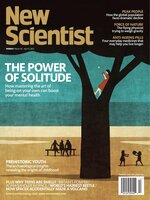 Mar 30 2024
Mar 30 2024
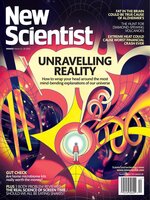 Mar 23 2024
Mar 23 2024
 Mar 16 2024
Mar 16 2024
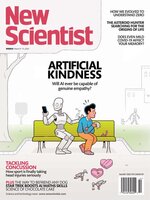 Mar 09 2024
Mar 09 2024
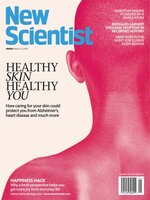 Mar 02 2024
Mar 02 2024
 Feb 24 2024
Feb 24 2024
 Feb 17 2024
Feb 17 2024
 10 Feburary 2024
10 Feburary 2024
 Feb 03 2024
Feb 03 2024
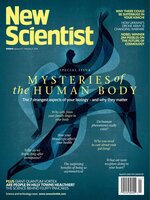 Jan 27 2024
Jan 27 2024
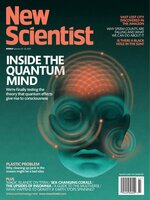 Jan 20 2024
Jan 20 2024
 Jan 13 2024
Jan 13 2024
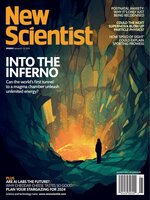 Jan 06 2024
Jan 06 2024
 Dec 30 2023
Dec 30 2023
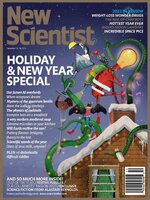 Dec 16 2023
Dec 16 2023
 Dec 09 2023
Dec 09 2023
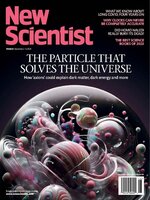 Dec 02 2023
Dec 02 2023
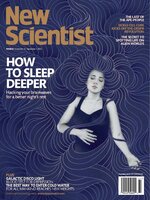 Nov 25 2023
Nov 25 2023
 Nov 18 2023
Nov 18 2023
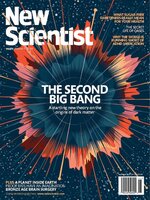 Nov 11 2023
Nov 11 2023
 Nov 04 2023
Nov 04 2023
